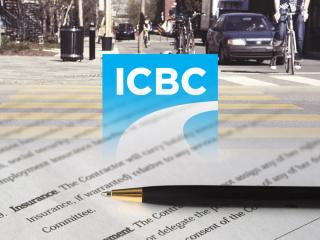Court applies principles of jurisprudence regarding multiple defence medical assessments
Released August 11, 2016 | Full Decision [CanLII]
This decision provides a useful application of the leading case regarding multiple defence medical assessments. As explained by Lemon J., “the Court can order a defence medical by one or more health practitioner pursuant to s. 105(2) of the Court of Justice Act, where the physical or mental condition of a party to a proceeding is in question. Rule 33.01(2) of the Rules of Civil Procedure states that the Court may order a second or further examinations on such terms respecting costs and other matters as are just.”
When this motion was heard, the plaintiff had already served expert reports regarding psychiatry, chronic pain, physiatry, neuropsychology, future care costs and income loss. He had been examined by a defence psychiatrist and was scheduled to be examined by a defence physiatrist. Now, the defence was seeking an order compelling the plaintiff to attend an assessment by Dr. Hugh Cameron, orthopaedic surgeon and “…chronic pain specialist.”
The leading case in this area is Bonello v. Taylor, 2010 ONSC 5723. As held therein, the factors for the court to consider are:
(i) The party seeking the order for a further examination must demonstrate that the assessment is warranted and legitimate, and not made with a view to delaying trial, causing prejudice to the other party, or simply corroborating an existing medical opinion;
(ii) A request may be legitimate where there is evidence that (i) the party’s condition has changed or deteriorated since the date of a previous examination, (ii) a more current assessment of the plaintiff’s condition is required for trial, (iii) the plaintiff served specialist reports from new assessors after the defendants had conducted their medical assessments, or (iv) some of the party’s injuries fall outside the expertise of the first examining health practitioner;
(iii) Some cases take the view that the need for a “matching report” – i.e. a report from a defence expert witness in the same specialty as a plaintiff’s expert – is not, in and of itself, a sufficient reason to order a further defence medical. In the circumstances of the present case I need not wade deeply into that question. That said, I would venture that trial fairness should operate as the guiding principle in this area, so if the plaintiff has decided that expert evidence from one specialty based on an examination of the plaintiff is relevant to the adjudication of her claim at trial, courts should be loathe to deny the defence a fair opportunity to respond with expert evidence from the same specialty based on an assessment of the plaintiff. Ordering further examinations may be just where they are necessary to enable the defendant fairly to investigate and call reasonable responding evidence at trial;
(iv) Where the request is for the examination of the plaintiff by a person who is not a health practitioner, such as a rehabilitation expert, the defendant must demonstrate that the proposed examination is necessary as a diagnostic aid to the health practitioner who is conducting the defence medical examination;
(v) A request for a second examination must be supported by sufficient evidence to persuade a court of the need for the further examination. What constitutes sufficient evidence will vary from case to case. Some cases have suggested that need must be established by filing medical evidence, such as an affidavit from the first examining physician recommending a further examination by a health practitioner competent in another specialty. In other instances an affidavit from a lawyer or law clerk attaching medical reports has been utilized by the court. But, at the end of the day, determining whether the nature of the evidence filed is sufficient remains essentially an exercise of judicial discretion;
(vi) While fairness, or “creating a level playing field”, may constitute a legitimate reason for ordering a second examination, someone with knowledge of the evidence in the case must provide evidence of unfairness for the court to consider; and,
(vii) A court should consider whether the request for a further examination would impose an undue burden on the plaintiff in light of the number of examinations already conducted of her by the defence.
In denying the relief sought by the defence, Lemon J. highlighted the fact that the plaintiff had not served an orthopaedic report. “The plaintiff is not relying on an orthopaedic report; I see no need for the defence to have one,” he held. Lemon J. also found no sufficient evidence to persuade the court that Dr. Cameron was an expert in chronic pain, notwithstanding the fact that he had been qualified as such in an earlier case.
Read the full decision on CanLII











